Israel’s Eurovision semi-final success overshadowed by pro-Palestine protests in Malmo
Israel’s success in the second Eurovision semi-final was overshadowed on Thursday by widespread protests against the country’s participation in the annual song contest.
Eden Golan, who is representing Israel at this year’s event, was voted through to the grand final following her dramatic performance of “Hurricane”, a song that was reworked from original entry “October Rain” after it was widely interpreted as a reference to the Hamas attacks of 7 October.
The organisers behind Eurovision, the European Broadcasting Union, have repeatedly rejected calls to ban Israel from the contest amid its ongoing war on Gaza, where the death toll is believed to have reached as high as 35,000.
Swedish police have estimated between 10,000 to 12,000 people took part in the protest march, which was joined by climate activist Greta Thunberg, who gathered outside the Malmö Arena where the event is being held.
During the demonstrations, smoke canisters in the colours of the Palestinian flag were set off, as protestors carried signs displaying images of Gaza civilians who have been injured amid the Hamas-Israel conflict.
At one point, the pro-Palestinian demonstrators were told to go back by police and, following shouts of “free Palestine”, returned to the main gathering.
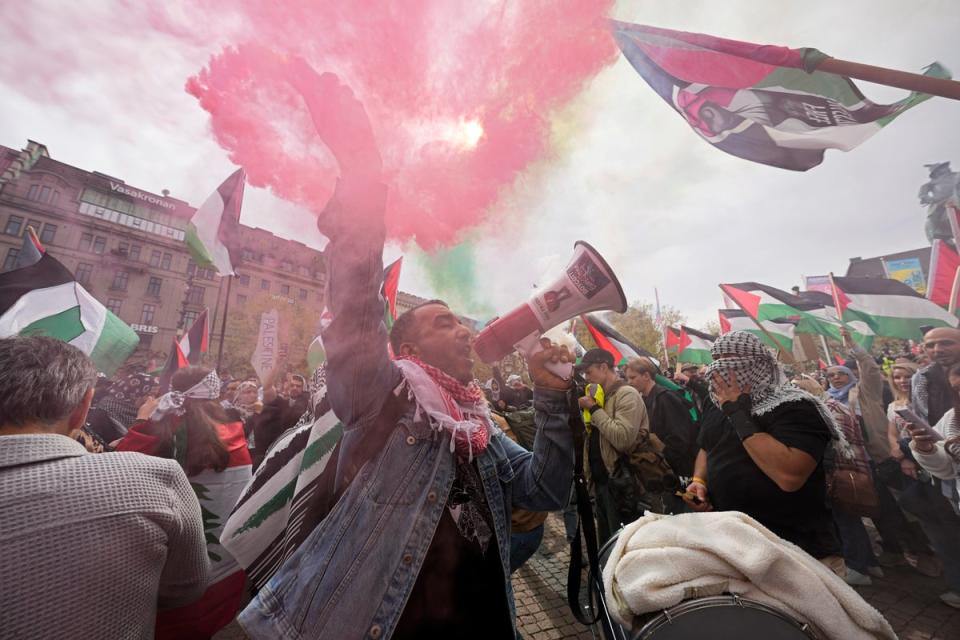
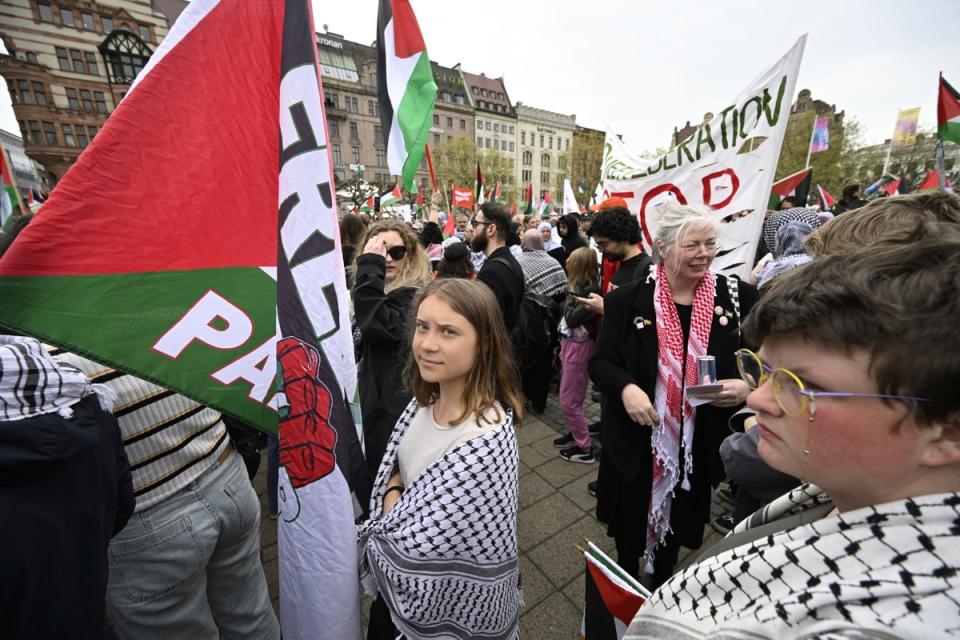
There was also a banner created with Eurovision-style branding with the words “genocide” on it, an accusation vigorously denied by Israel amid the war with Hamas which was sparked by the October 7 killings and kidnappings of hundreds of Israelis.
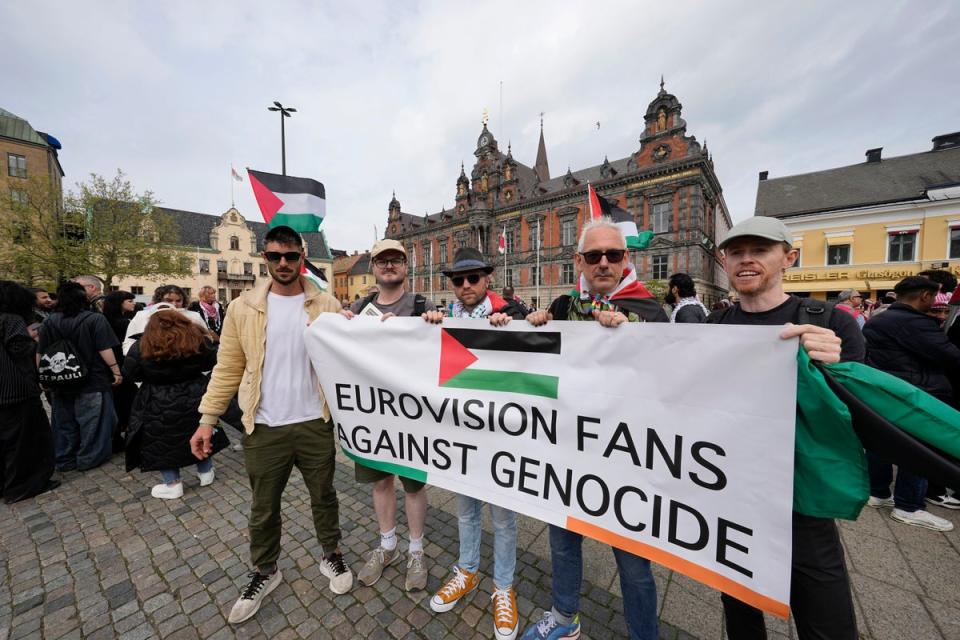
Earlier this week, the EBU said that to exclude Israeli broadcaster Kan would be viewed as a “political decision”, insisting that the contest remains a “non-political event”.
Jean Philip De Tender, the deputy director general of the EBU, said that its verdict had been taken in line with standard competition rules that were in line with other international federations, including sports bodies, which are also continuing to allow Israel to take part in their events.
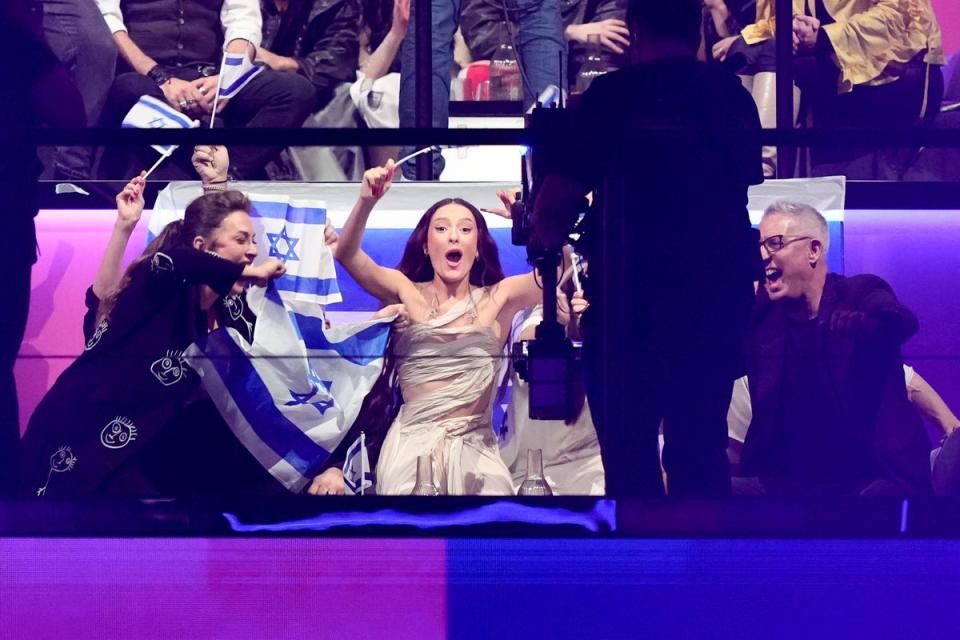
“I fully agree it is a family event and the great thing about this music competition is that it’s all about values,” De Tender said. “It’s about uniting onstage all of these young talents, these participants, and they do great. It’s about diversity and inclusion.
Discussing the backlash, he added: “We do understand the concerns and the deeply held views that many people have around the war in the Middle East and I think nobody can remain untouched by the profound suffering of everybody involved in that war.
“The Eurovision Song Contest is a music event which is organised and co-produced by 37 public broadcasters, so it’s not a competition between nations or governments.”
Organisers have also said they reserve the right to remove any Palestine flags or symbols from the Malmö Arena, as only flags that represent countries taking part, and the rainbow flag, can be brought to the event.
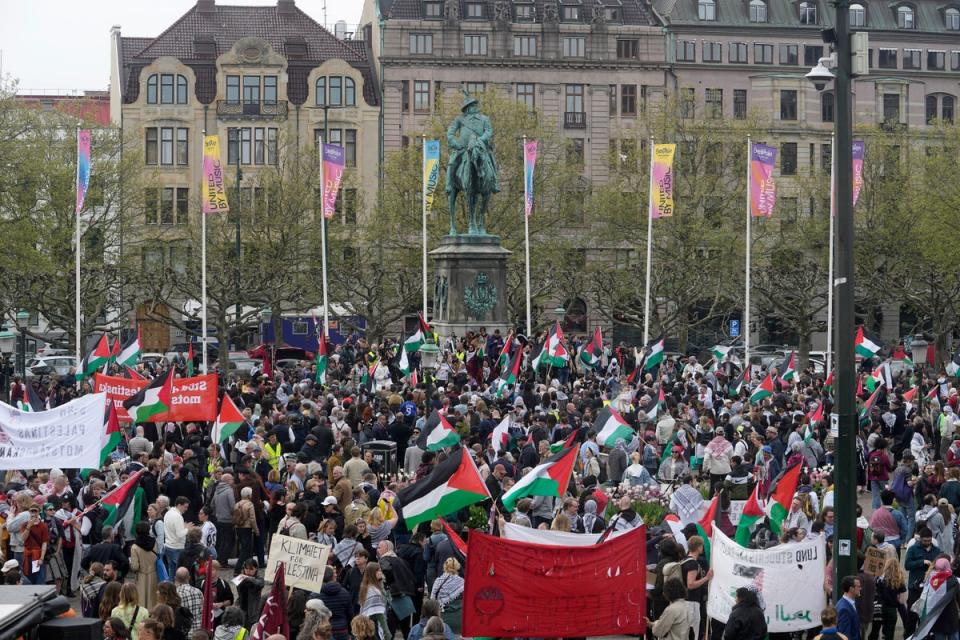
However, audience members booing Golan during her performance at the final on Saturday 11 May will not be “censored”, organisers said. Golan was previously met with boos and shouts of “free Palestine” during the dress rehearsal for the semi-final on Thursday.
She will perform sixth during Saturday’s final, after the Netherlands’ contestant Joost and ahead of the UK’s representative Olly Alexander, who is 13th in the running order.

Appearing at a press conference following her success in the semi-final, Golan said she was “overwhelmed with emotions” and that she was “super excited to go on stage once more, and share that of my love with everyone”.
Joost pressed her to also answer a journalist’s question about whether she felt she was bringing “risk and danger” for other participants by competing.
“I think we’re all here for one reason and one reason only and the EBU (European Broadcasting Union) is taking all safety precautions to make this a safe and united place for everyone and so I think it’s safe for everyone and we wouldn’t be here (if not),” she responded.


